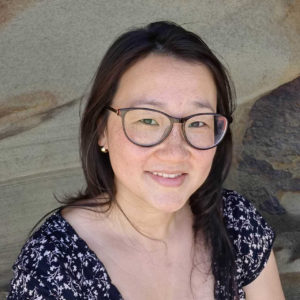To further thank and recognise the support from our excellent reviewer community, we are highlighting reviewers who have provided exceptional support to the journal over the past year.
This month, we’ll be highlighting Dr William Unsworth, Professor Kara Bren, Professor Grace Han and Professor David Harding. We asked our reviewers a few questions about what they enjoy about reviewing, and their thoughts on how to provide a useful review.
Dr William Unsworth, University of York. Dr William Unsworth focused on the development of new method in organic synthesis, with a particular focus on ring expansion reactions, large ring synthesis, spirocycle synthesis and biocatalysis.
Professor Kara Bren, University of Rochester. Professor Kara Bren’s group is developing systems for artificial photosynthesis. In particular, we focus on creating and studying biomolecular and bioinspired fuel-forming catalysts as well as biological modules for charge transfer.
Professor Grace Han, Brandeis University. Professor Grace Han’s research centers on the interaction of light with organic molecules including photoswitches in condensed phases with the goal of promoting sustainable solar energy storage and efficient industrial chemical recycling.
Professor David Harding, Suranaree University of Technology. Professor David Harding’s research is concerned with the design and discovery of molecular magnetic switches with applications in sensing and next generation data storage.
What encouraged you to review for Chemical Science?
Professor Grace Han: First off, I enjoy reading and publishing papers in Chemical Science because of its interdisciplinary nature and strong emphasis on novelty, so I also value contributing to the review process as a member of the community.
Professor Kara Bren: When I receive a paper well within my expertise, I am motivated to provide comments that I hope will yield the best possible final publication. I appreciate it when I get constructive comments on my manuscripts from reviewers, and I hope to provide the same to others.
Professor David Harding: Chemical Science publishes insightful studies and has a great reputation for robust, but fair peer review. As it’s Diamond Open Access this really helps those of us who work in developing countries to showcase our work.
Dr William Unsworth: I do my best to review papers for as many journals as I am able, as good peer review is so important across the sciences. Also, as a long term RSC member and elected member of the RSC Organic Community Committee, I always am especially happy to be invited to review for the RSC’s flagship journal!
What do you enjoy most about reviewing?
Professor Grace Han: Many times I get inspired by the cool ideas and techniques that are illustrated in the manuscripts, and I also have learned a lot by observing how professionally authors respond to the reviewers’ requests by improving the quality of their work.
Dr William Unsworth: Taking the time to read a paper in detail – something I find I have frustrating little time to do outside of reviewing. Having an early preview of exciting new results before they are published is nice too, and it can be very satisfying to see first hand the improvements made to papers as a result of the peer review process.
Professor David Harding: This might sound odd, but I’d say being helpful. I often read papers where there’s a good story there, but it’s hidden. I see it as my job to help the authors tell it, even if I end up recommending against publication in Chemical Science.
What are you looking for in a paper that you can recommend for acceptance in Chemical Science?
Professor Grace Han: I consider two main factors. (i) Novelty of the research work. (ii) Quality of the research work.
Dr William Unsworth: A good idea, that has been well executed and is well described. I also really value balance in a paper – I am far more likely to accept a paper in which the strengths AND limitations of the research are explained in a clear and open manner.
Do you have any advice to our readers seeking publication in Chemical Science on what makes a good paper?
Professor Grace Han: I believe that a good paper tells a story that is not only technically rigorous but also inspirational to readers from various backgrounds.
What makes a paper truly stand out for you when reviewing a paper?
Professor Kara Bren: My favorite papers report results that make me say, wow, how did we not think of that before? I especially appreciate work that yields important fundamental advances by taking a creative new approach.
Professor David Harding: The best papers are those that provide new directions in chemistry telling the story of the work in a clear and accessible manner. All too often authors, and reviewers, get lost in the technical details of the study, such that the key findings are lost.
How do you balance reviewing with your other activities?
Dr William Unsworth: With difficulty – the polite reminders sent by patient editorial staff when deadlines are approaching/have been missed certainly help!
What single piece of advice would you give to someone about to write their first review?
Professor Grace Han: I would suggest keeping an open mind when reviewing science that departs from a traditional approach or method. I believe that it is an important role of reviewers to promote innovations.
Did reviewing for Chemical Science affect how you approached preparation of your recent publication with us?
Professor David Harding: Absolutely! I’ve found that reviewing for the journal causes me to more critically assess what I write and ask questions like “Is the data convincing? Are there other interpretations? Is this the clearest way that I can say that?”
Tune in next month to meet our next group of #ChemSciReviewers!
If you want to learn more about how we support our reviewers, check out our Reviewer Hub.
Interested in joining our ever-growing reviewer community? Apply here now!


















































